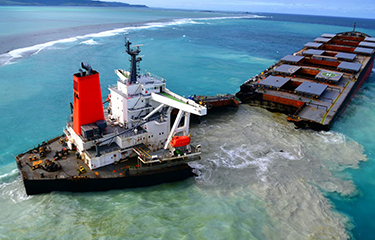Prairies to be biggest winners of federal infrastructure money
KENNEY CAN QUIT WHINING NOW

Prairie provinces will receive the bulk of Ottawa’s $1.5 billion commitment to support irrigation projects, according to federal Minister of Agriculture Marie-Claude Bibeau.
On Oct. 1, the federal government launched a $10 billion infrastructure plan over three years aimed at five different sectors, including agriculture. The $1.5 billion is expected to result in 700,000 acres of irrigated land.
Members of the Liberal Party of Canada say the investment, being funnelled through the Canada Infrastructure Bank, will create 60,000 jobs.
“The 1.5 billion that is dedicated to agriculture will most likely be dedicated to the Prairies and the West, because we are targeting major irrigation projects and I think there are opportunities for investment in this sector in the Prairies and this is why the bank has already started significant discussions with the provinces, the municipalities, the private sector to see how we could move forward,” said Bibeau. “Most probably, the Prairies will benefit the lion’s share from this part of the investment.”
She stopped short of mentioning specific projects, but Saskatchewan’s $4 billion Lake Diefenbaker irrigation project is a top candidate to receive federal support.
Saskatchewan’s government announced earlier this year plans to spend 10 years working on the project that would allow farmers to irrigate 500,000 acres.
In September, the federal Western Economic Diversification Canada agency recommended Ottawa help fund the Diefenbaker irrigation project, contending the completed project would add $85 billion to Canada’s gross domestic product and $20 billion in tax returns back to government.
While targeted to the agriculture sector, the project is also expected to be beneficial for the potash industry.
Adding to the likelihood of federal support is the role former Liberal cabinet member and Saskatchewan MP Ralph Goodale continues to play within party circles, he is a long-time advocate for the project and a respected voice in party circles.
Scott Moe, who is running in the current Saskatchewan election to continue to serve as premier, said he was given a heads-up on the announcement.
“I hope this is positive news. There is some money ear-marked for the irrigation project, irrigation projects,” he told reporters in Regina. “We have a significant irrigation
investment that will be coming here in the province of Saskatchewan.”
“We will be looking at the details of this very soon,” he said, adding he hopes it is an investment rather than a loan through the infrastructure bank.
Ottawa’s announcement also contained a $2 billion commitment to expanding high-speed broadband access. In the recent Throne Speech, the government said it wanted to improve internet access in rural and remote communities.
The Canadian Federation of Agriculture said in a news release it was “encouraged” by the funding announcement.
“Rural broadband has been a long-standing issue for Canada’s farmers and rural communities. With the arrival of COVID-19, many services pivoted to become entirely online, highlighting the fact farmer’s lack of high-speed connectivity puts us at a significant business disadvantage.
“Rural broadband is not only necessary for today’s farmers to conduct business and take advantage of cutting-edge technology, it is also critical to attracting new, young farmers into the industry,” said CFA president Mary Robinson in a statement.






